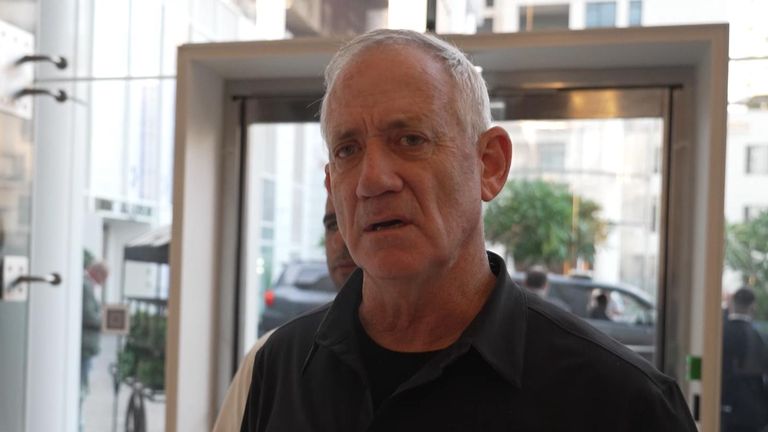Maybe there will be a breakthrough in the hours or couple of days ahead.
But it doesn’t feel likely from the language we’ve heard from the men (they are all men) driving the war and the diplomacy in this conflict.
Antony Blinken, the US secretary of state, spent Friday in Israel meeting the Israeli leadership and Saturday in Jordan meeting Arab leaders.
He was threading the tightest of diplomatic needles: maintaining full support for Israel’s right to defend itself while demonstrating to the world that America is capable of influencing events to bring about an end to civilian casualties.
Follow live: Several reportedly killed in blast at UN shelter in Gaza
The Israeli objectives are clear and perhaps summarised most succinctly by war minister Benny Gantz to me on Friday.
“Everything that happens in Gaza right now is rightly connected to break Hamas and release the hostages. All the rest are simply details.”
Those “details” were outlined by the Jordanian foreign minister alongside Mr Blinken in Jordan.
He reminded the world that 3,700 children have died in Gaza in the last four weeks. That’s more, he said, than all the children killed in all conflicts globally since 2019.
He added that the situation in Gaza will create “a sea of hatred that will define generations to come”.
That’s the deep long-term concern. The damage may already have been done – hatred sowed through events generated by the protagonists on both sides – but the extent of the impact depends, most immediately, on the ability to stop the bloodshed in Gaza.
Read more:
Average person in Gaza living on two pieces of bread per day
Briton tells of ‘chaos’ in leaving Gaza
Pro-Palestinian protesters arrested in London



